Campaign contribution limits, citywide participatory budgeting and term limits for community board members likely on the ballots in November

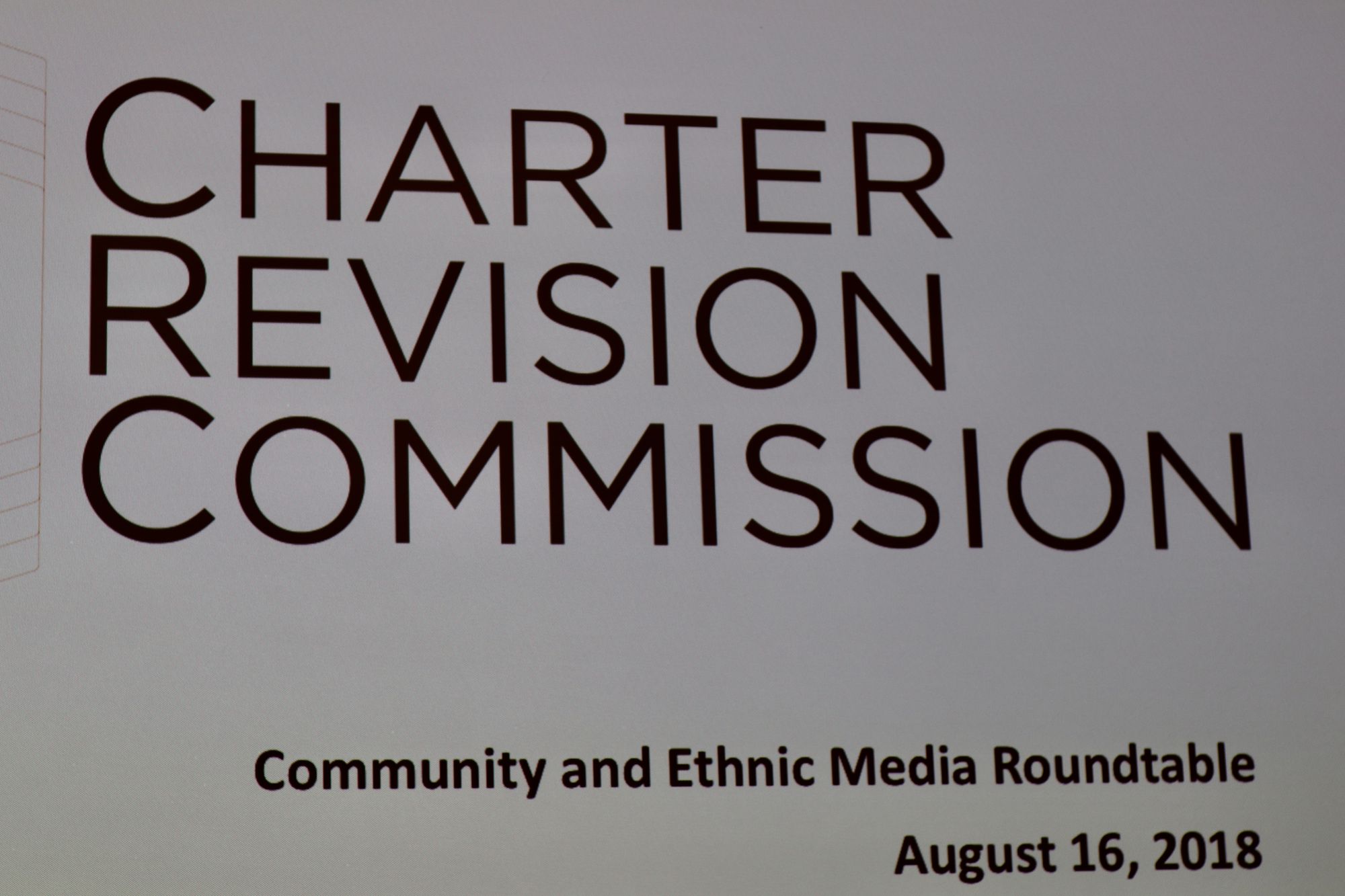
DUMBO – Decreasing campaign contribution limits, launching a citywide participatory budgeting program, and establishing term limits for community board members are some of the proposed changes to the NYC Charter Resolution. If approved to be on the ballot, the public can vote for them in the November elections.
After months of hearing testimonies from the public and elected officials, and holding public hearings, the NYC Charter Revision Commision put forth a resolution on several proposed changes to the NYC Charter on Tues. August 14. The Commision, convened by Mayor Bill de Blasio, sat down with local journalists at a roundtable hosted by Errol Louis on Thurs. August 16 to discuss the proposed changes.
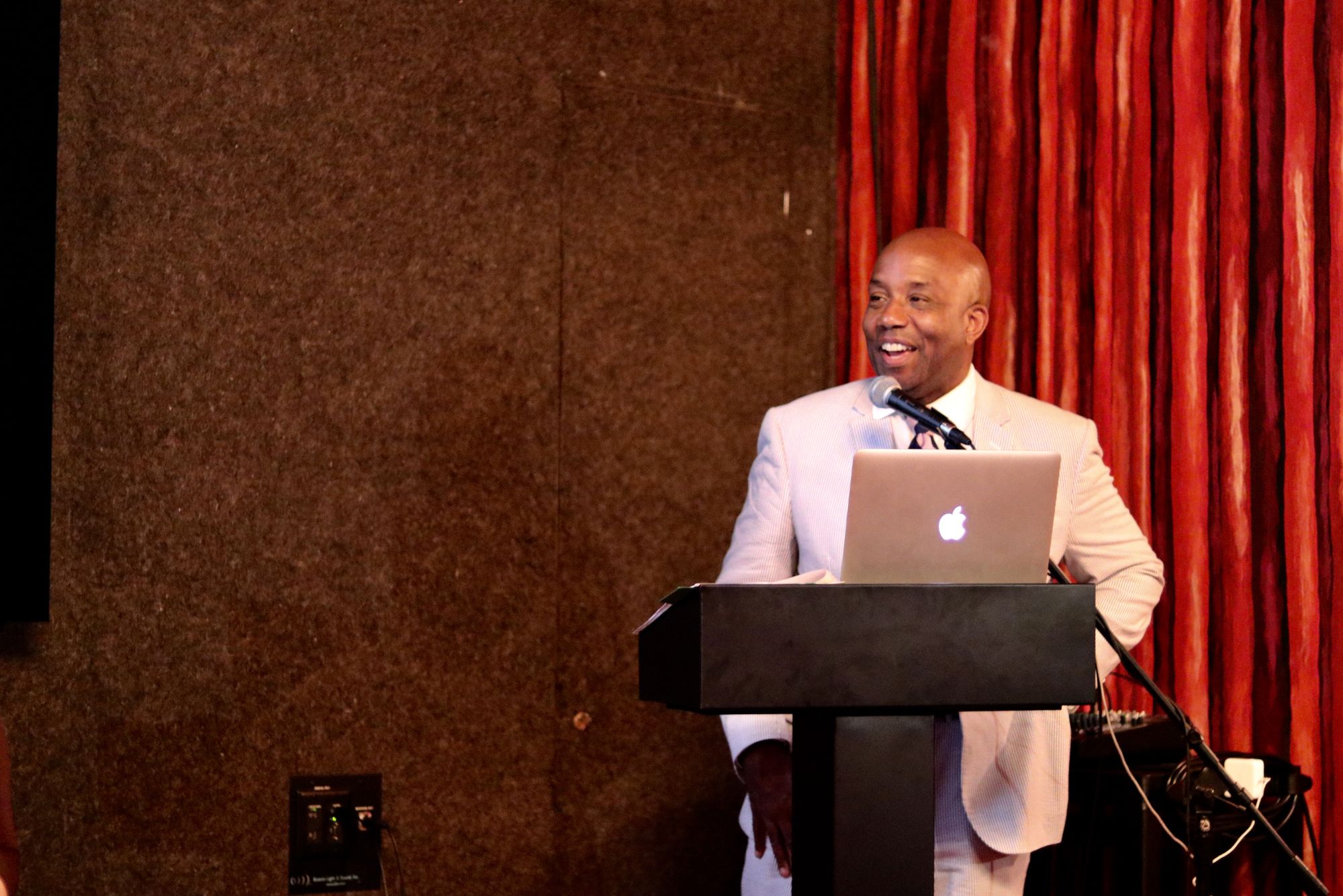
The NYC Charter defines the functions, organization, powers, obligations, and liabilities of the city’s government. As Louis put it, it’s “sort of what the U.S Constitution is for the country… it’s an administrative code.” Charter Revision Commission takes testimonies, hears from experts, and makes proposals to put before voters to update it.
From the various testimonies the Commision heard, the top issue was campaign finance.
“The commissioners have directed us to draft legislative language that would decrease the contributions (amount of money people are able to contribute to candidates) and increase the matching ratio (amount of money candidates receive in public funds),” Matt Gewolb, the executive director of the NYC Charter Revision Commision said.
“The idea is that a system like this can work against corruption or the perception of corruption in the political system.”
The proposed changes to campaign finance are as follows:
- Decrease individual contribution limits for candidates who choose to participate in the public financing program to $2,000 for citywide offices, $1,500 for Borough President offices, and $1,000 for City Council offices, per election cycle.
- Decrease individual contribution limits for candidates who choose not to participate in the public financing program to $3,500 for citywide offices, $2,500 for Borough President offices, and $1,500 for City Council offices, per election cycle.
- Change the formula for determining public matching funds to a ratio of 8 to 1 in public funds matched on the first $250 of eligible contributions for citywide offices, and to a ratio of 8 to 1 in public funds matched on the first $175 of eligible contributions for Borough President and City Council offices.
- Increase the cap on public matching funds, per candidate and per election, to 75% of the expenditure limit for the relevant office.
- Make public funds available to qualifying candidates earlier in the election year.
The second most frequent testimonials the Charter heard were about community boards. More specifically, establishing term limits for board members.
“What we heard across the city is that there’s an enormous desire for the community boards to reflect the diversity of communities and they don’t always do that” Gewolb said. “The idea is that by imposing term limits… new folks will get an opportunity to serve their communities.”
These are the proposed changes to term limits:
- Establish a limit of four consecutive full two-year terms for community members, with the staggering of implementation beginning on April 1, 2019.
- Establish that community board members who had previously served for four consecutive terms are not barred from re-appointment after one full term out of office.
Commissioner Dr. Una Clarke, who was the councilwoman for the 40th District for 10 years, believes there are several benefits of having term limits.
“As the community grows, so will the members on the community board,” she said. “What we’re trying to do is give a voice to every resident of the city of NY who has the desire to serve their community and be a part of their community.”
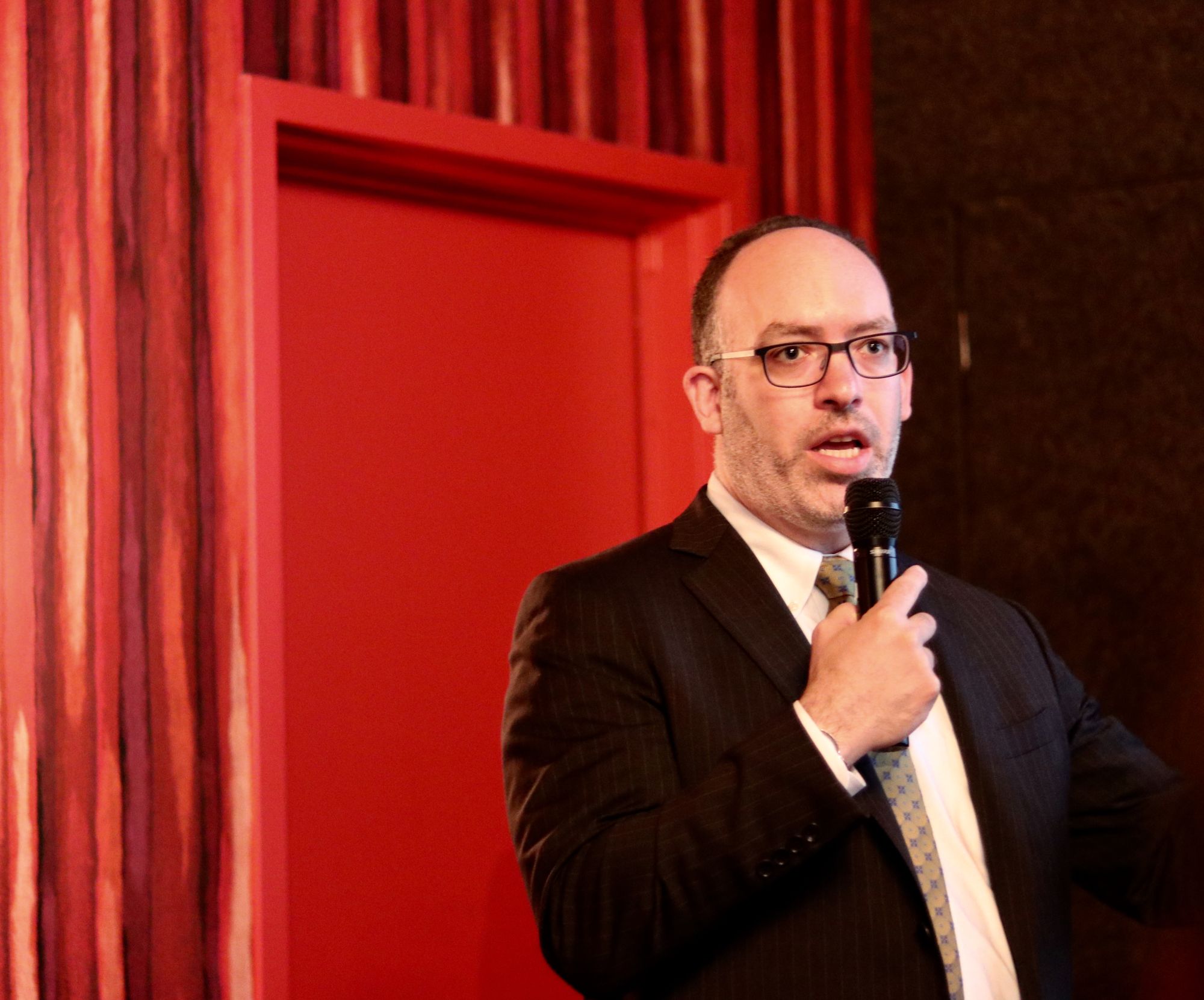
The proposed changes also include requiring Borough Presidents to make community board applications available online and to publish an annual report highlighting information about the community boards.
“We’re saying there needs to be a little more transparency around these processes. You need to tell us, the members of the public, what’s going on in the appointment of the recruitment process.”
The proposed changes to the appointment process include:
- Prescribing uniform categories of basic information that must be included in all community board applications and requiring all Borough Presidents to make an application available online.
- Requiring all Borough Presidents to publish an annual report disclosing:
- The number of open community board positions.
- Information about current community board members.
- The Borough President’s recruitment methods.
- The evaluation criteria followed in the selection process.
Resources and related matters:
- Requiring the Civic Engagement Commision (see below) to provide technical assistance services, including urban planning and other resources, including but not limited to language assistance services, to community boards.
- Requiring community boards to maintain a website.
Establishing a Civic Engagement Commision is another proposed change in the Charter that the Commision heard a lot of testimonies on. “We heard… from a wide range of people, the desire to be more engaged with civic life in the city,” Gewolb said.
The new proposed Commision would be responsible for various things, such as establishing a citywide participatory budgeting (PB) program. PB is a democratic process where the community decides how to spend a part of the public budget allocated to their district. This year ten Brooklyn Councilmembers – Levin, Reynoso, Cumbo, Cornegy, Menchaca, Lander, Eugene, Williams, Treyger, and Yeger – took part in allocating at least $1 million each from their budgets. Children as young as 11 years old are eligible to vote and take part.
Here’s everything the proposed Civic Engagement Commision would responsible for:
- Launching a citywide PB program.
- Providing technical assistance services, including urban planning and other resources to community boards.
- Coordinating existing civic engagement efforts by City agencies.
- Supporting and partnering with community-based organizations, institutions and civic leaders in the public and private sectors in their civic engagement efforts, which may include, among other activities, leadership development, stewardship of public spaces, youth engagement, and targeted services to immigrant or other vulnerable communities.
- Taking actions to encourage, promote, and facilitate voter registration and voting, including but not limited to targeted outreach to groups who are underrepresented among those registered and those voting, including eligible voters who are limited in English proficiency.
- Providing language access services.
“What we’re thinking about here is a body that would be able to coordinate the various activities we already have throughout the City,” Commissioner Marco A. Carrión said. “We have so many agencies that are currently involved through the civic engagement spectrum. It would be good to have a focus, one place where folks could enter and find all the information and resources available.”
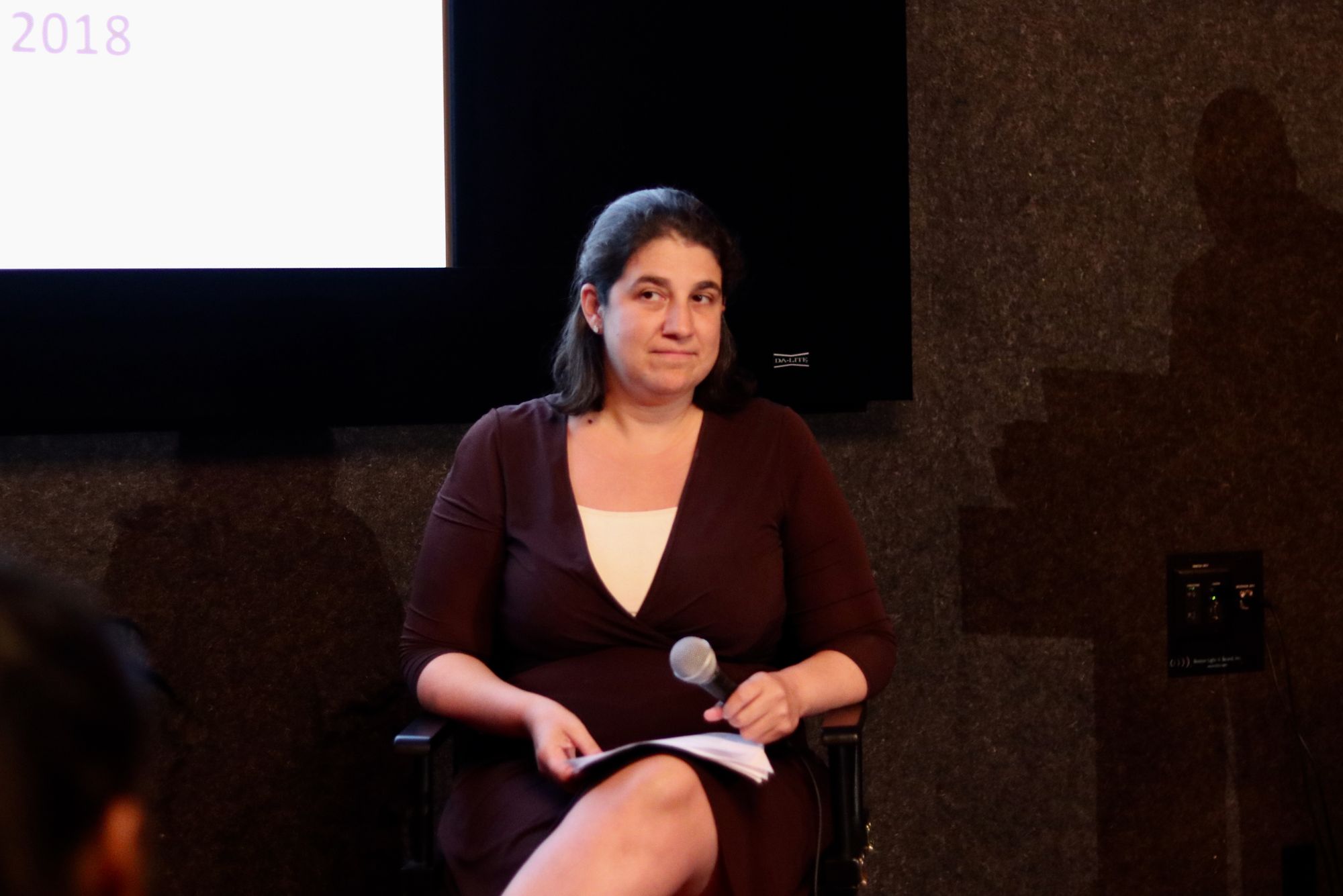
Civic engagement provides for language access. Over 200 languages are spoken in NYC and half of all New Yorkers speak a language other than English at home.
Here are the proposed changes to language access:
- Requiring the Civic Engagement Commision to consider the needs of language communities in developing its programs and services and seek to ensure that the Commission’s programs and services are accessible to limited English proficient New Yorkers.
- Requiring the Civic Engagement Commision, in coordinating with the Mayor’s Office of Immigrant Affairs, to develop a plan for providing voter education, assistance, and outreach services in languages other than English to individuals who are eligible or may not become eligible to vote.
- Requiring the Civic Engagement Commision to develop, in coordination with the Mayor’s Office of Immigrant Affairs, a plan to provide interpreters at poll sites throughout the City, which shall include but not be limited to a methodology for determining which languages and poll sites shall be covered under such program, including a requirement to periodically review and adopt such methodology as appropriate in response to the needs of language communities.
- Requiring designation of an individual to coordinate language access services provided by the Civic Engagement Commission and a process to monitor and timely respond to public complaints.
- Requiring the Civic Engagement Commission to track and report the provision of language assistance services, including the number of voters that utilized interpreters at poll sites.
Commissioner Angela Fernandez said that the two months before the elections will be spent on educating voters:
“Our goal during these coming months is to ensure that folks understand why this particular election is so critical,” she said. “It’s one of the few times that the community can actually participate in something like the Charter Revision.”
Here are the next steps for the Commision:
- On August/September, the Commision will hold a public meeting to discuss and vote on the final report and any ballot proposals to amend the Charter.
- By September 7, if there are any Charter revision ballot proposals, they would be filed with the City Clerk.
- From September to November, there will be a multi-lingual education and outreach campaign to make voters aware of the proposed changes and what’s at stake.
- The questions will be on the ballot on November 6 for voters to vote on.
Currently, the specific questions to go on the ballots have not been created. Gewolb estimates that there can be somewhere from three to ten questions.
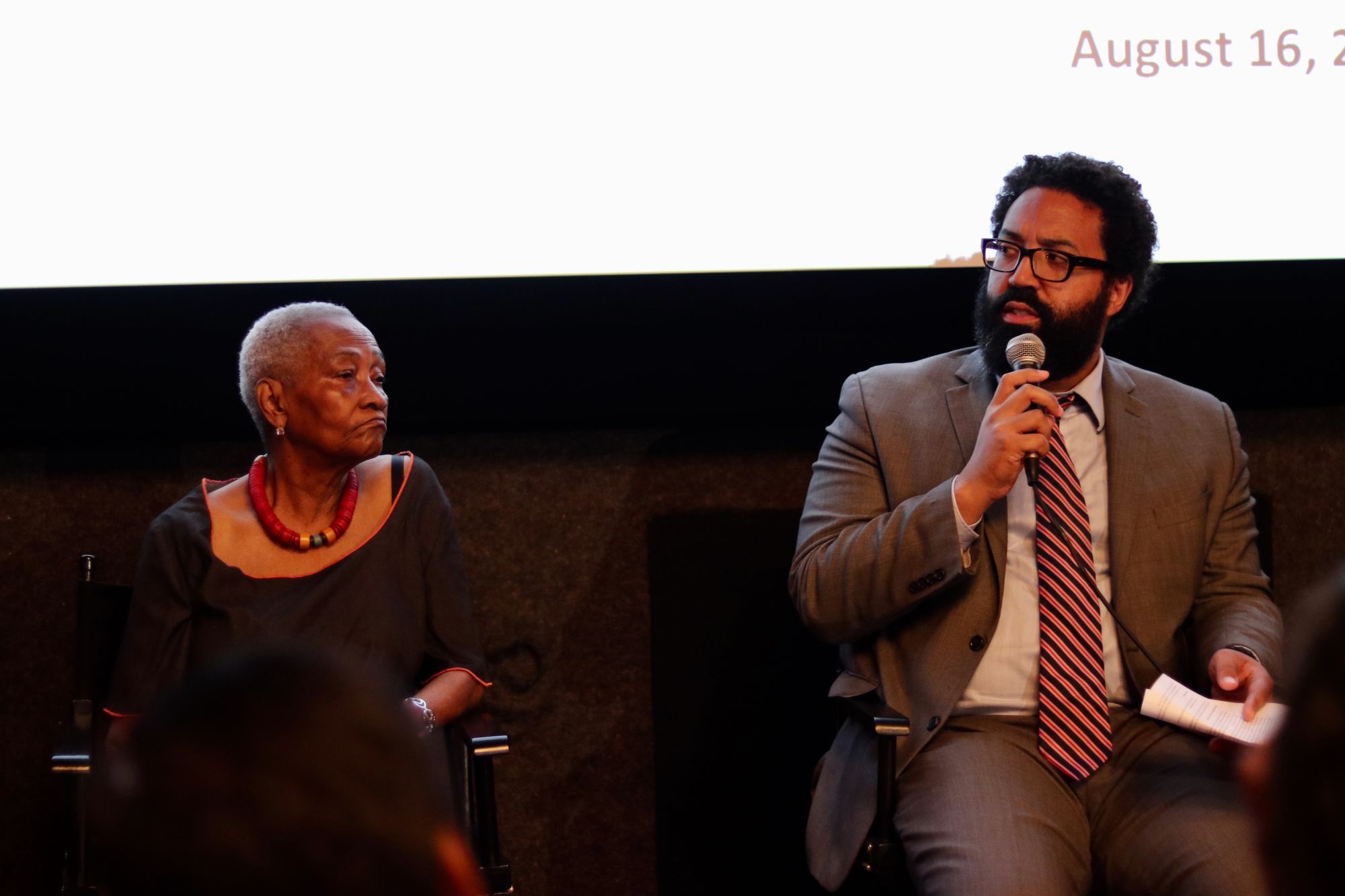
“This is a tremendous opportunity,” Fernandez said, “for the community to provide input on what is essentially the City’s constitution.”
You can view the August 14 Charter Revision Commission Resolution here.



